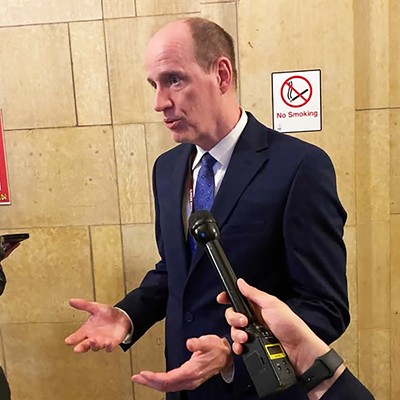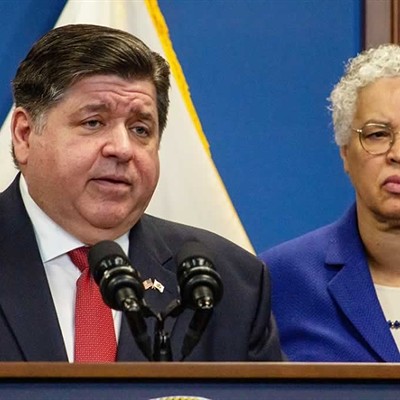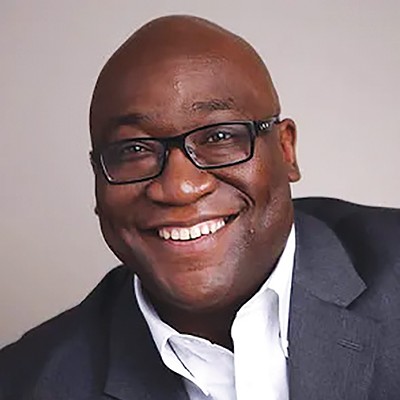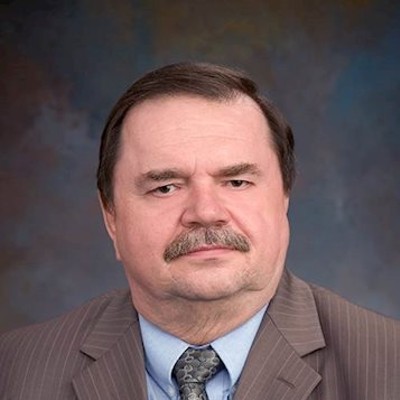U.S. District Court Judge Colin Bruce has been barred from presiding over criminal cases due to ex parte communications with an employee of the U.S. attorney’s office about a criminal case while a trial was in progress.
“This court is temporarily reassigning all cases in which the United States is a party that are pending before Judge Bruce,” U.S. District Court Judge James Shadid, chief judge of the Central District of Illinois, said in a prepared statement.
The removal of Bruce from criminal matters comes two days after Illinois Times reported that the judge had exchanged emails in late 2016 with a paralegal in the U.S. attorney’s office, criticizing both the defendant and the performance of federal prosecutors. The defendant, who was convicted of kidnapping by a jury and sentenced to more than two years by Bruce, is now asking for a new trial.
Shadid’s decision today to prohibit Bruce from presiding over criminal cases comes one day after Bruce recused himself from the kidnapping case. In his recusal order filed Thursday, Bruce says that the emails did not affect the kidnapping case against Sarah Nixon.
“At the time it was sent, and now, I consider the email exchange to be innocuous and merely a private email conversation with someone entirely uninvolved in this case,” Bruce wrote in his recusal order. “In fact, the record indicates there was no contact concerning the email between my former paralegal in Springfield and any member of the prosecution in Urbana. Nevertheless, in an abundance of caution, I now recuse myself from this case and transfer it to Chief Judge Shadid for any further matters.”
It’s not clear how long Bruce will not preside over criminal cases, but his removal from pending matters includes such high profile cases as the prosecutions of former U.S. Rep. Aaron Schock, who is accused of misuse of public money and filing false tax returns, and Brendt Christensen, a former University of Illinois graduate student who is charged with kidnapping and killing a Chinese scholar.
In the Nixon case, Bruce took the highly unusual step of sealing a motion she filed in June, asking to supplement the court record, presumably to allow the 2016 emails to be introduced into her kidnapping case. Bruce also sealed his order denying her request. The day after Nixon requested a new trial, Bruce this week rejected the request. The emails, attached to Nixon’s request for a new trial, were initially available on the court’s electronic website, but were removed within 24 hours, with the word “restricted” appearing in lieu of the documents.
The emails exchanged in late 2016 only recently came to light. It's not clear how they were discovered or why it took more than a year for the messages to surface. The U.S. attorney's office declined comment on the emails exchanged between Bruce, who is based in Champaign, and Lisa Hopps, a paralegal in the Springfield office. The office also did not respond to an emailed question asking what, if any, steps the office has taken to determine whether the judge has communicated with office personnel about any other pending cases.
Bruce became a federal prosecutor after graduating from law school in 1989 and remained with the U.S. attorney's office until 2013, when he was appointed to the bench. In his recusal order filed Thursday, Bruce wrote that emails exchanged with Hopps, whom he considered a friend, were sent in part to explain why he didn't attend a retirement party for former U.S. attorney James Lewis.
"I was Mr. Lewis' former first assistant United States attorney, and a more than 20-year friend of Mr. Lewis," Bruce wrote. "My absence from his retirement party was unexpected."
Contact Bruce Rushton at [email protected]




















